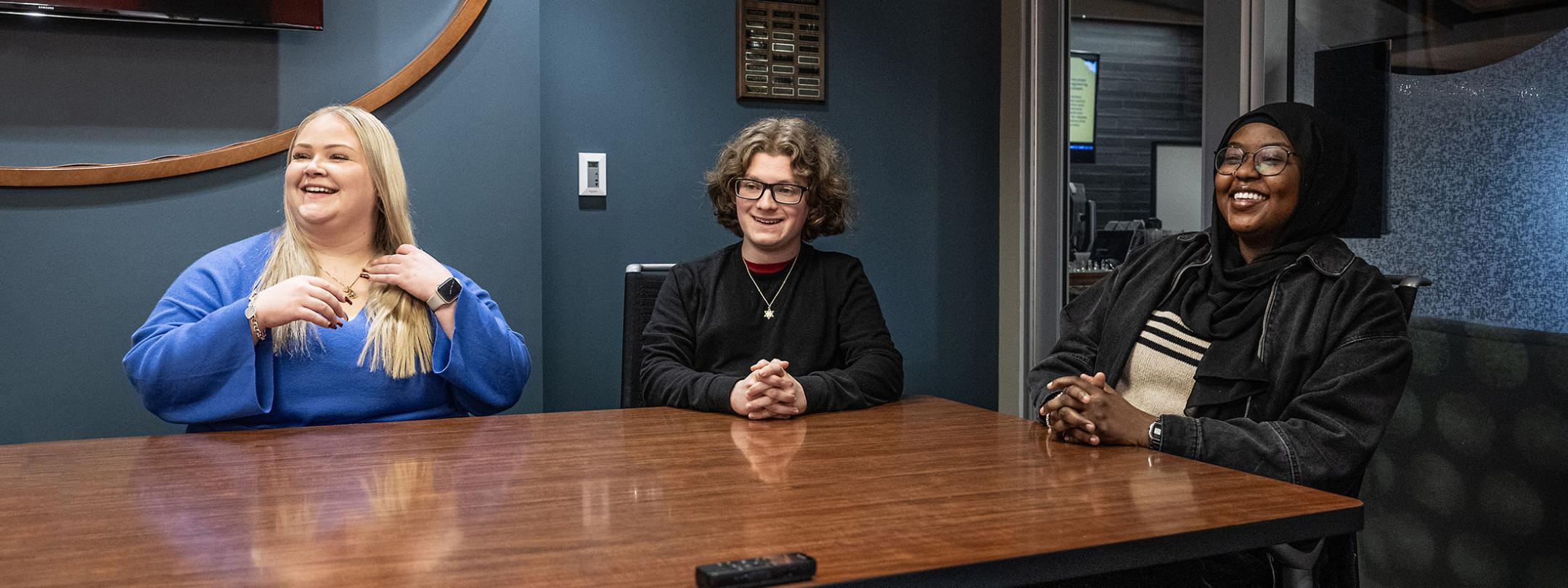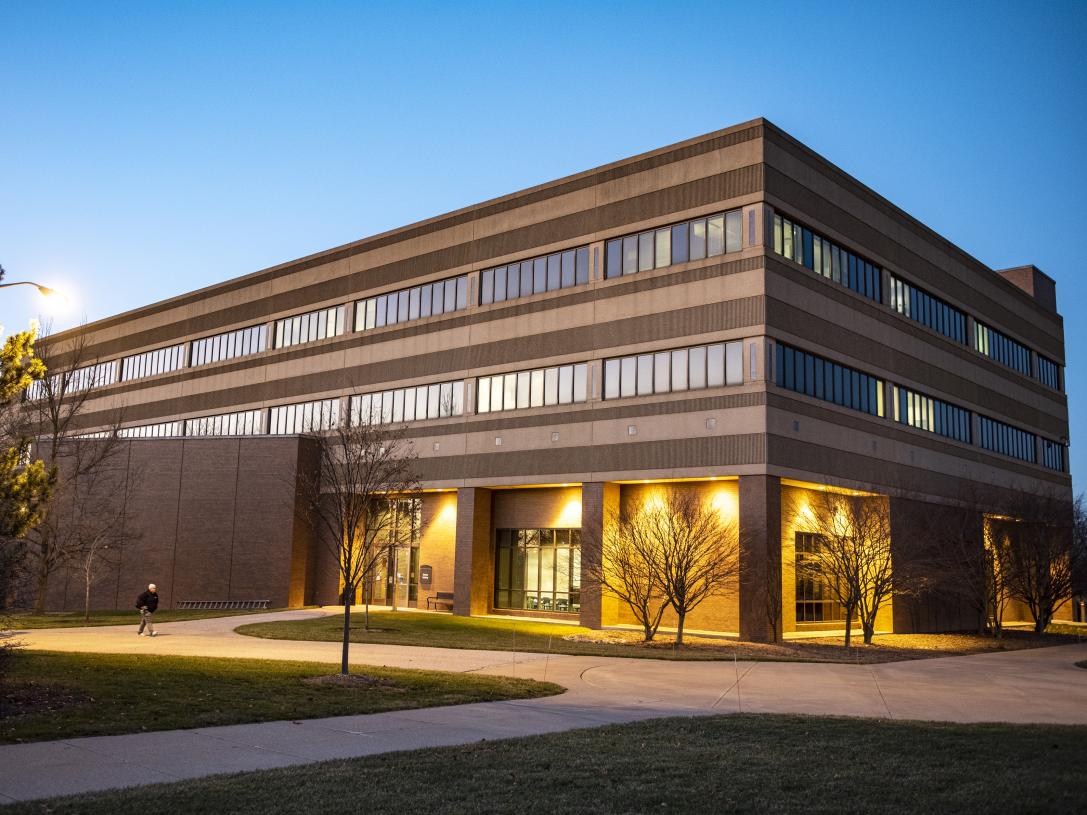
Journal of Purdue Undergraduate Research expands roster of Mastodons
By Blake Sebring
April 2, 2025
The first rule of being a writer is no one can effectively edit their own work.
This can be especially true for young academics’ early attempts at writing research papers, but a group of Purdue University Fort Wayne students has stepped up to help by joining the Journal of Purdue Undergraduate Research editorial board. JPUR is a student-run, peer-reviewed publication from the Purdue West Lafayette campus.
Seniors Elizabeth Strong, Ellie Dart, and Manal Ali; juniors Lara Alfahdli, Ye Yint Phone Myint, Katelynn McPhee, and Kendra Murray; and sophomore Alex Bayburt-Gurevich have dedicated hours—some over two years—to help prospective JPUR authors with constructive feedback.
“I have always wanted to be part of a student-run publication, and writing has always been a form of expression I have loved,” said Phone Myint, a double major in economics and data science. “The opportunity to help others express their ideas through writing is a natural fit. I love being able to support fellow students in the same way I have been supported throughout my academic journey.”
The inclusion of PFW students in the journal is a recent development, and a big step for the university. That involvement started two years ago with Makaila Groves, B.S. ’23, and Anna Pence, B.S. ’24, who is now a graduate student.
“They are all enthusiastic and motivated, willing to give of their time to improve themselves and as a service,” said Naomi Gurevich, associate professor of communication sciences and disorders, who is a member of the JPUR advisory board and PFW’s JPUR liaison. “And they understand the importance of the contributions they are making. I’ve read the reviews submitted by PFW students and they are thoughtful, thorough, well-written, and quite honestly very impressive.”
Zhenisbek Assylbekov, assistant professor of data science, Noor Borbieva, professor of anthropology and member of the women’s studies faculty, and Connie Kracher, associate vice chancellor for research, also serve with Gurevich on the JPUR advisory board.
Though not a requirement, research experience is helpful. Ali submitted three works to PFW’s Student Research and Creative Endeavors Symposium on March 21, which raised her total to six during her time as an undergraduate. Dart, who's on track to graduate in May, presented her third and fourth posters at the symposium. Ali is applying to medical school, and Dart was recently admitted into a Ph.D. neuroscience program.
“Maybe it’s as simple as reading about different things,” Ali said. “It’s easy to be immersed in your own discipline, especially whatever major you are in, but reading about random synthesis things, nutrition things, or education is interesting.”
Though she’s very good at conducting research, Ali said the experience helped her decide she doesn’t want to make that the primary focus of her career.
Dart definitely plans to pursue research in the future and said the JPUR experience has helped her improve her work.
“I’ve learned a lot about what a good paper looks like versus one when someone is not necessarily prepared to publish,” the psychology major said. “Just getting exposure to what research papers look like and how to ensure they are written properly is really good experience that you don’t get writing your own research. Being able to read others that are the same age in different fields is really helpful.”
Bayburt-Gurevich said he learned he enjoys analyzing and offering a unique critique. He hopes to become a professional writer, but said this experience taught him he also might consider becoming an editor. He said that as a writer, he always needs to improve and study the work of others.
Alfadhli, a psychology major, said serving on JPUR allowed her to understand the publication process and the criteria that shape the production of good academic writing.
“It has definitely helped my attention to detail and improved my abilities in being able to think critically about writing structure and argumentation,” Alfadhli said. “I have learned to enjoy the editorial process and being able to improve writers’ work without overriding their voice. This experience has also helped me be more critical of my own writing.”
Each PFW researcher receives two papers at a time to edit and some have worked on as many as six or seven papers during their tenure.
“Aside from it being a unique experience, it’s one of those things outside the classroom you should definitely do, because it allows you to speak to what you have learned,” Ali said. “It’s very hands-on, very applicable to learning how to decipher scientific articles whether you like them or not as part of your college career.”



